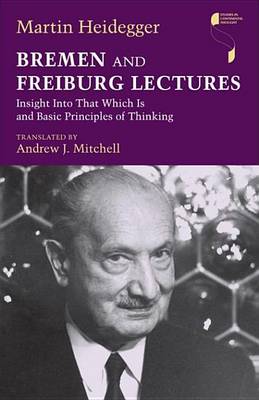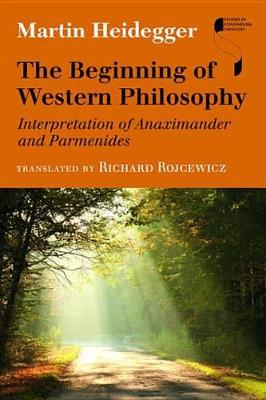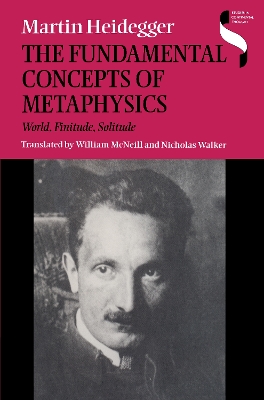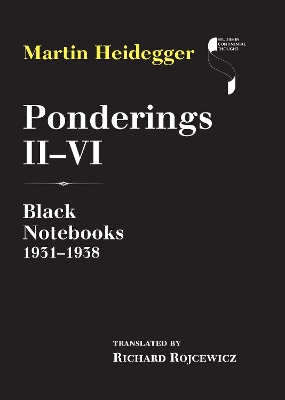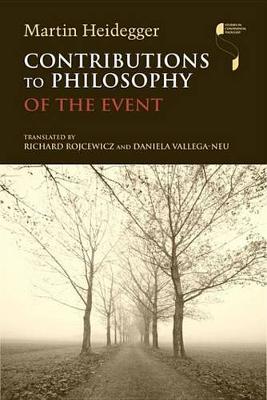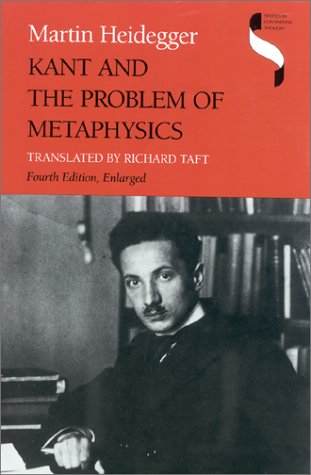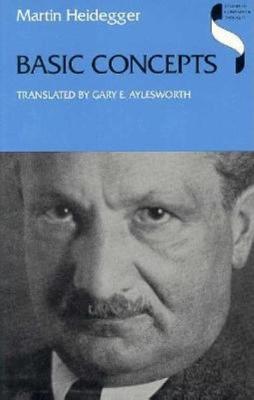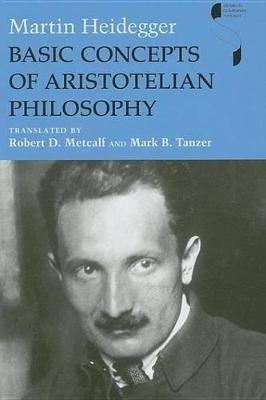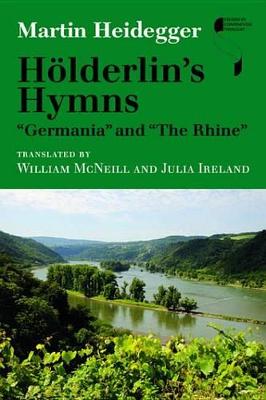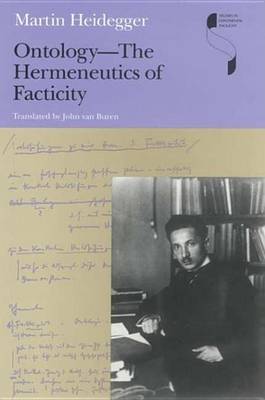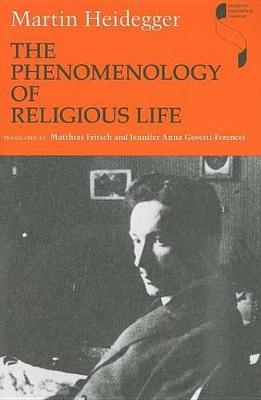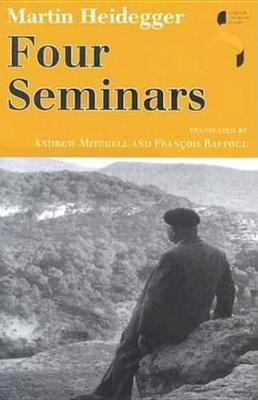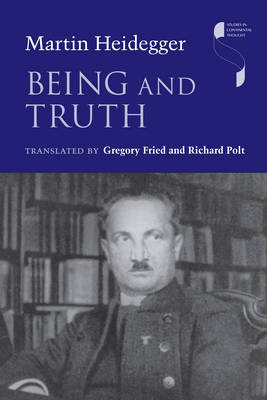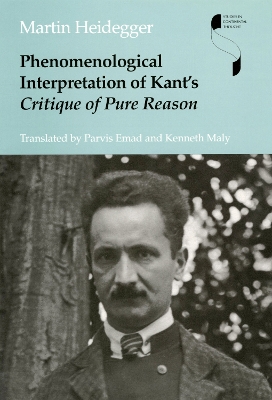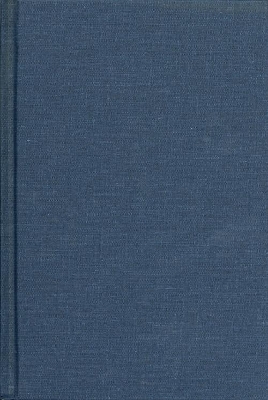Studies in Continental Thought
37 total works
This volume consists of two lecture series given by Heidegger in the 1940s and 1950s. The lectures given in Bremen constitute the first public lectures Heidegger delivered after World War II, when he was officially banned from teaching. Here, Heidegger openly resumes thinking that deeply engaged him with Hoelderlin's poetry and themes developed in his earlier works. In the Freiburg lectures Heidegger ponders thought itself and freely engages with the German idealists and Greek thinkers who had provoked him in the past. Andrew J. Mitchell's translation allows English-speaking readers to explore important connections with Heidegger's earlier works on language, logic, and reality.
Volume 35 of Heidegger's Complete Works comprises a lecture course given at the University of Freiburg in 1932, five years after the publication of Being and Time. During this period, Heidegger was at the height of his creative powers, which are on full display in this clear and imaginative text. In it, Heidegger leads his students in a close reading of two of the earliest philosophical source documents, fragments by Greek thinkers Anaximander and Parmenides. Heidegger develops their common theme of Being and non-being and shows that the question of Being is indeed the origin of Western philosophy. His engagement with these Greek texts is as much of a return to beginnings as it is a potential reawakening of philosophical wonder and inquiry in the present.
This book, the text of Martin Heidegger's lecture course of 1929/30, is crucial for an understanding of Heidegger's transition from the major work of his early years, Being and Time, to his later preoccupations with language, truth, and history. First published in German in 1983 as volume 29/30 of Heidegger's collected works, The Fundamental Concepts of Metaphysics presents an extended treatment of the history of metaphysics and an elaboration of a philosophy of life and nature. Heidegger's concepts of organism, animal behavior, and environment are uniquely developed and defined with intensity. Of major interest is Heidegger's brilliant phenomenological description of the mood of boredome, which he describes as a "fundamental attunement" of modern times.
Ponderings II–VI begins the much-anticipated English translation of Martin Heidegger's "Black Notebooks." In a series of small notebooks with black covers, Heidegger confided sundry personal observations and ideas over the course of 40 years. The five notebooks in this volume were written between 1931 and 1938 and thus chronicle Heidegger's year as Rector of the University of Freiburg during the Nazi era. Published in German as volume 94 of the Complete Works, these challenging and fascinating journal entries shed light on Heidegger's philosophical development regarding his central question of what it means to be, but also on his relation to National Socialism and the revolutionary atmosphere of the 1930s in Germany. Readers previously familiar only with excerpts taken out of context may now determine for themselves whether the controversy and censure the "Black Notebooks" have received are deserved or not. This faithful translation by Richard Rojcewicz opens the texts in a way that captures their philosophical and political content while disentangling Heidegger's notoriously difficult language.
Contributions to Philosophy (of the Event) Contributions to Philosophy (of the Event)
by Martin Heidegger
Martin Heidegger's Contributions to Philosophy reflects his famous philosophical "turning." In this work, Heidegger returns to the question of being from its inception in Being and Time to a new questioning of being as event. Heidegger opens up the essential dimensions of his thinking on the historicality of being that underlies all of his later writings. Contributions was composed as a series of private ponderings that were not originally intended for publication. They are nonlinear and radically at odds with the traditional understanding of thinking. This translation presents Heidegger in plain and straightforward terms, allowing surer access to this new turn in Heidegger's conception of being.
The work is significant not only for its illuminating assessment of Kant's thought but also for its elaboration of themes first broached in "Being and Time", especially the problem of how Heidegger proposed to enact his destruction of the metaphysical tradition and the role that his reading of Kant would play therein.
Volume 18 of Martin Heidegger's collected works presents his important 1924 Marburg lectures which anticipate much of the revolutionary thinking that he subsequently articulated in Being and Time. Here are the seeds of the ideas that would become Heidegger's unique phenomenology. Heidegger interprets Aristotle's Rhetoric and looks closely at the Greek notion of pathos. These lectures offer special insight into the development of his concepts of care and concern, being-at-hand, being-in-the-world, and attunement, which were later elaborated in Being and Time. Available in English for the first time, they make a significant contribution to ancient philosophy, Aristotle studies, Continental philosophy, and phenomenology.
Martin Heidegger's 1934-1935 lectures on Friedrich Hoelderlin's hymns "Germania" and "The Rhine" are considered the most significant among Heidegger's lectures on Hoelderlin. Coming at a crucial time in his career, the text illustrates Heidegger's turn toward language, art, and poetry while reflecting his despair at his failure to revolutionize the German university and his hope for a more profound revolution through the German language, guided by Hoelderlin's poetry. These lectures are important for understanding Heidegger's changing relation to politics, his turn toward Nietzsche, his thinking about the German language, and his breakthrough to a new kind of poetic thinking. First published in 1980 as volume 39 of Heidegger's Complete Works, this graceful and rigorous English-language translation will be widely discussed in continental philosophy and literary theory.
First published in 1988 as volume 63 of his Collected Works, Ontology-The Hermeneutics of Facticity is the text of Heidegger's lecture course at the University of Freiburg during the summer of 1923. In these lectures, Heidegger reviews and makes critical appropriations of the hermeneutic tradition from Plato, Aristotle, and Augustine to Schleiermacher and Dilthey in order to reformulate the question of being on the basis of facticity and the everyday world. Specific themes deal with the history of ontology, the development of phenomenology and its relation to Hegelian dialectic, traditional theological and philosophical concepts of man, the present situation of philosophy, and the influences of Aristotle, Luther, Kierkegaard, and Husserl on Heidegger's thinking. Students of Heidegger will find initial breakthroughs in his unique elaboration of the meaning of human experience and the "question of being," which received mature expression in Being and Time.
The Phenomenology of Religious Life presents the text of Heidegger's important 1920-21 lectures on religion. The volume consists of the famous lecture course Introduction to the Phenomenology of Religion, a course on Augustine and Neoplatonism, and notes for a course on The Philosophical Foundations of Medieval Mysticism that was never delivered. Heidegger's engagements with Aristotle, St. Paul, Augustine, and Luther give readers a sense of what phenomenology would come to mean in the mature expression of his thought. Heidegger reveals an impressive display of theological knowledge, protecting Christian life experience from Greek philosophy and defending Paul against Nietzsche.
Martin Heidegger's The Event offers his most substantial self-critique of his Contributions to Philosophy: Of the Event and articulates what he means by the event itself. Richard Rojcewicz's elegant translation offers the English-speaking reader intimate contact with one of the most basic Heideggerian concepts. This book lays out how the event is to be understood and ties it closely to looking, showing, self-manifestation, and the self-unveiling of the gods. The Event (Complete Works, volume 71) is part of a series of Heidegger's private writings in response to Contributions.
Martin Heidegger's 1925-26 lectures on truth and time provided much of the basis for his momentous work, Being and Time. Not published until 1976 as volume 21 of the Complete Works, three months before Heidegger's death, this work is central to Heidegger's overall project of reinterpreting Western thought in terms of time and truth. The text shows the degree to which Aristotle underlies Heidegger's hermeneutical theory of meaning. It also contains Heidegger's first published critique of Husserl and takes major steps toward establishing the temporal bases of logic and truth. Thomas Sheehan's elegant and insightful translation offers English-speaking readers access to this fundamental text for the first time.
Bremen and Freiburg Lectures: Insight Into That Which Is and Basic Principles of Thinking
by Martin Heidegger
In Four Seminars, Heidegger reviews the entire trajectory of his thought and offers unique perspectives on fundamental aspects of his work. First published in French in 1976, these seminars were translated into German with Heidegger's approval and reissued in 1986 as part of his Gesamtausgabe, volume 15. Topics considered include the Greek understanding of presence, the ontological difference, the notion of system in German Idealism, the power of naming, the problem of technology, danger, and the event. Heidegger's engagements with his philosophical forebears-Parmenides, Heraclitus, Kant, and Hegel-continue in surprising dialogues with his contemporaries-Husserl, Marx, and Wittgenstein. While providing important insights into how Heidegger conducted his lectures, these seminars show him in his maturity reflecting back on his philosophical path. An important text for understanding contemporary philosophical debates, Four Seminars provides extraordinarily rich material for students and scholars of Heidegger.
In these lectures, delivered in 1933-1934 while he was Rector of the University of Freiburg and an active supporter of the National Socialist regime, Martin Heidegger addresses the history of metaphysics and the notion of truth from Heraclitus to Hegel. First published in German in 2001, these two lecture courses offer a sustained encounter with Heidegger's thinking during a period when he attempted to give expression to his highest ambitions for a philosophy engaged with politics and the world. While the lectures are strongly nationalistic and celebrate the revolutionary spirit of the time, they also attack theories of racial supremacy in an attempt to stake out a distinctively Heideggerian understanding of what it means to be a people. This careful translation offers valuable insight into Heidegger's views on language, truth, animality, and life, as well as his political thought and activity.
Phenomenological Interpretation of Kant's Critique of Pure Reason
by Martin Heidegger
The text of Martin Heidegger's 1927-28 university lecture course on Emmanuel Kant's Critique of Pure Reason presents a close interpretive reading of the first two parts of this masterpiece of modern philosophy. In this course, Heidegger continues the task he enunciated in Being and Time as the problem of dismatling the history of ontology, using temporality as a clue. Within this context the relation between philosophy, ontology, and fundamental ontology is shown to be rooted in the genesis of the modern mathematical sciences. Heidegger demonstrates that objectification of beings as beings is inseparable from knowledge a priori, the central problem of Kant's Critique. He concludes that objectification rests on the productive power of imagination, a process that involves temporality, which is the basic constitution of humans as beings.
"[Heidegger's] greatest work . . . essential for all collections." —Choice
" . . . students of Heidegger will surely find this book indispensable." —Library Journal
Contributions to Philosophy (From Enowning), written in 1936-38 and first published in 1989 as Beiträge zur Philosophie (Vom Ereignis), is Heidegger's most ground-breaking work after the publication of Being and Time in 1927. If Being and Time is perceived as undermining modern metaphysics, Contributions undertakes to reshape the very project of thinking.
